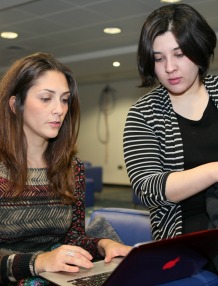Research in forensic speech science
Aims
Aims
Knowledge and skills acquired in terms 1 and 2 are applied to the forensic domain, with a particular focus on the practices and problems of speaker comparison.
Further techniques for forensic speech analysis are introduced. Lectures and seminars take a largely case-based approach, drawing on authentic materials in order to illustrate professional practice.
The module will also survey current research in the field to provide specific grounding for dissertations.
Programme
Programme
Contact hours
4 contact hours per week: 2 lectures, 2 labs.
Teaching programme
Topics to be covered include:
- speaker comparison
- speaker profiling
- analysing disputed utterances
- automatic systems
- likelihood ratios
- legal precedents and legal practice with respect to speech and language evidence
- report writing and delivery of evidence in court.
Outcomes should include:
- an understanding of the practical methods used in forensic speech analysis, particularly in speaker comparison, and their associated problems;
- an understanding of the key research issues in forensic phonetics and acoustics;
- an understanding of how to design research projects in the forensic domain;
- practical experience of speaker comparison and other applications of phonetics and acoustics in the forensic domain.
Teaching materials
Essential readings will be identified each week. Key readings are available in a course pack or on-line.
Assessment
Assessment
Two case reports:
- The first is 2,000 words
- Weight: 40%
- The second is 3,000 words
- Weight: 60%

About this module
- Module name
Research in forensic speech science- Course code
L32M (LAN00032M)- Teacher
Paul Foulkes- Term(s) taught
Summer- Credits
10
